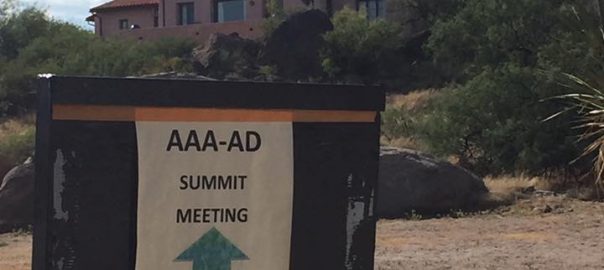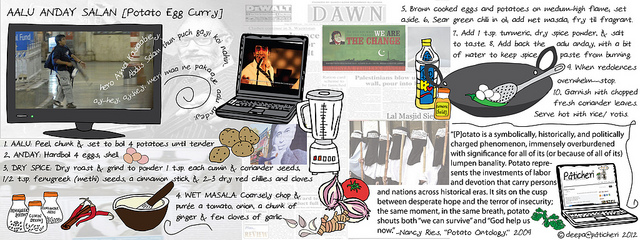This post is the latest in the November guest blog series by the Archaeology Division of the AAA. This post is by Lynne Goldstein. Lynne Goldstein is a Professor of Anthropology and the Director of the Campus Archaeology Program at Michigan State University. She is the outgoing Publications Director for the Archaeology Division of the AAA.
In this blogging miniseries, some of the officers of the AAA’s Archaeology Division (AD) have been outlining what makes the AD unique and important, as well as some future plans to increase our reach, as well as our member numbers. As noted earlier by both Jane Baxter and Patricia McAnany, the AD may not be the primary organization for most archaeologists, but it is the place where we can best bridge archaeology and other parts of anthropology.
Since 2013, my focus within the Archaeology Division has been on publications. But, as of the AAA meeting last week, I have come to the end of my tenure as Publications Director of the Archaeology Division of the American Anthropological Association. We are back on track, healthy, and publishing some great articles. Our publication – AP3A – is different than most AAA journals: it comes out only once a year, and the articles are submitted as a group with a guest editor. The volume is peer reviewed at several levels, and we don’t accept individually submitted articles. This has been the structure of the journal since its beginnings almost 30 years ago, and because each issue has a specific focus or theme, many scholars use the volumes for both research and teaching. Indeed, articles from AP3A are often also included in other anthropological collections focused on related topics. The journal has relatively small circulation numbers, but it is available in most libraries, and faculty often assign articles in their classes. Now that AnthroSource has been improved and the journal is digital only, anyone with full access to AnthroSource has access to the journal.
Are there ways that the AD can increase the influence and discussion that AP3A volumes produce? If the journal really focuses on broad theoretical and topical issues, shouldn’t more AAA members be interested in its content? If the impact can be increased, it would be to the benefit of the authors, the journal, and the members. Can we leap the divide and encourage other types of anthropologists to read AP3A? Certainly, with AnthroSource, accessibility is easy, but most people are busy and look only at those things they know. How do we get folks to take advantage of their easy accessibility to AP3A, and move us toward better integration of anthropology?
Blogging is one obvious way that we could increase interest in the journal, and we think that it might be a way to keep the issues of the AP3A active and relevant. If we regularly blog about the topics in the issue, more people would become engaged in the discussion, and more people would link back to the original articles.
Although I may be sounding crass, this strategy is not really about numbers – it is a discussion that the AD is having in an attempt to try and make its content more accessible, relevant, and part of larger anthropology conversations.
Many of us are rethinking publications and what they mean. If you work at a university, you are likely being evaluated and measured based on your Google Scholar scores or other such measures. The number of citations you have is seen as a measure of your influence in the profession, and while there are many, many problems with the calculation of such measures and what is included, it is also clear that these so-called “objective” measures will not go away. Universities like to use what they see as objective numbers that someone else calculates, and pushes by faculty to change their use will likely succeed only at the margins.
But I am talking about something else here. We have the technology and capacity to change the way we use and apply publications in our research and teaching. Once something is published, it should not be considered “done.” Why not regularly and actively focus a discussion on the published piece or pieces in a blog related to the publication? Discuss the article(s) and implications for current and/or future research. Highlight things that might be significant or interesting to a broader range of scholars, or to the general public. And, in addition to blogging, promote the discussion in other forms of social media. This is the kind of approach that the AD is discussing to make its work more visible, more accessible, and more relevant to a much broader range of people, whether they ever become members or not. We can have threads that focus on each issue, yet overlap and make broader points, develop arguments for and against specifics, and represent a real discussion of the topics.
What do you think? Would you participate in such discussions? Would it make you rethink your current or former opinion of the AD? Let us know. Of course, we are always open to other ideas too!


